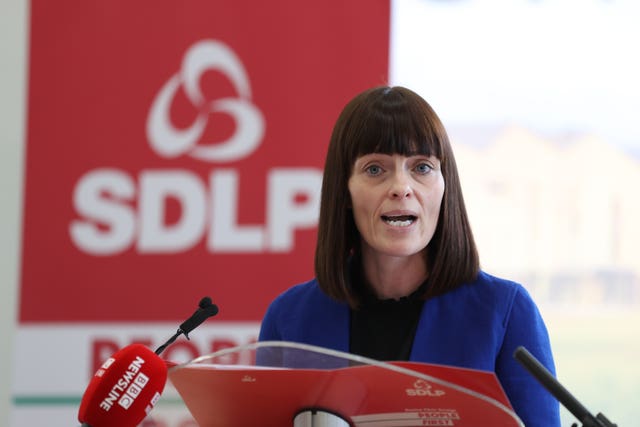Meetings of the Stormont Executive in late 2020 to consider extending Covid lockdown measures in Northern Ireland were characterised by “chaotic and frankly embarrassing horse-trading”, Naomi Long has said.
Northern Ireland’s Justice Minister told the Covid-19 Inquiry that a DUP move to trigger a cross-community vote over proposed health measures was an “egregious abuse of process”.
The inquiry, sitting in Belfast, is investigating the initial response to the pandemic, central government decision-making and political and civil service performance.
Alliance Party leader Ms Long became a minister in the Executive when the powersharing institutions were restored in January 2020, just as concerns were growing about the spread of the Covid virus.
She said a stark example of this were a series of Executive meetings at the start of November 2020 when ministers considered extending lockdown measures amid concerns over rising numbers of infections.
Ms Long said the restrictions would have fallen if ministers did not agree on an extension.
She said: “The health minister (Robin Swann) brought recommendations to the Executive; the DUP indicated they would not support those recommendations.
“They didn’t only vote against them, they triggered a parallel consent vote within the Executive.”
The cross-community vote triggered by the DUP effectively gave them a veto over the proposals.
Ms Long said: “We entered into a period of chaotic and frankly embarrassing horse-trading to try to find a solution to the fact that we were blocked from accepting the health minster’s recommendations.
“I felt it was an egregious abuse of a process that was conceived in order to protect minorities.”

Counsel to the inquiry Nick Scott asked if civil servants had tried to find consensus with the five parties which made up the Executive.
Ms Long said: “They did not do so with the five parties that made up the Executive, they did so with the first and deputy first ministers’ parties and with the health minister to the exclusion of two of the parties who were in the Executive.
“I believe that was detrimental.”
She added: “To some degree, we were disadvantaged.
“At a very practical level not being able to seek detailed advice from my officials made it very difficult for us to provide responses in a timely fashion.
“It was also very isolating because we were taking decisions which would have a huge impact on people’s lives and yet we’re not part of the wider conversation.
“We’re expected to, in many cases, rubber-stamp negotiations that others had had but then take full responsibility for those decisions we didn’t have a hand in forming.”






